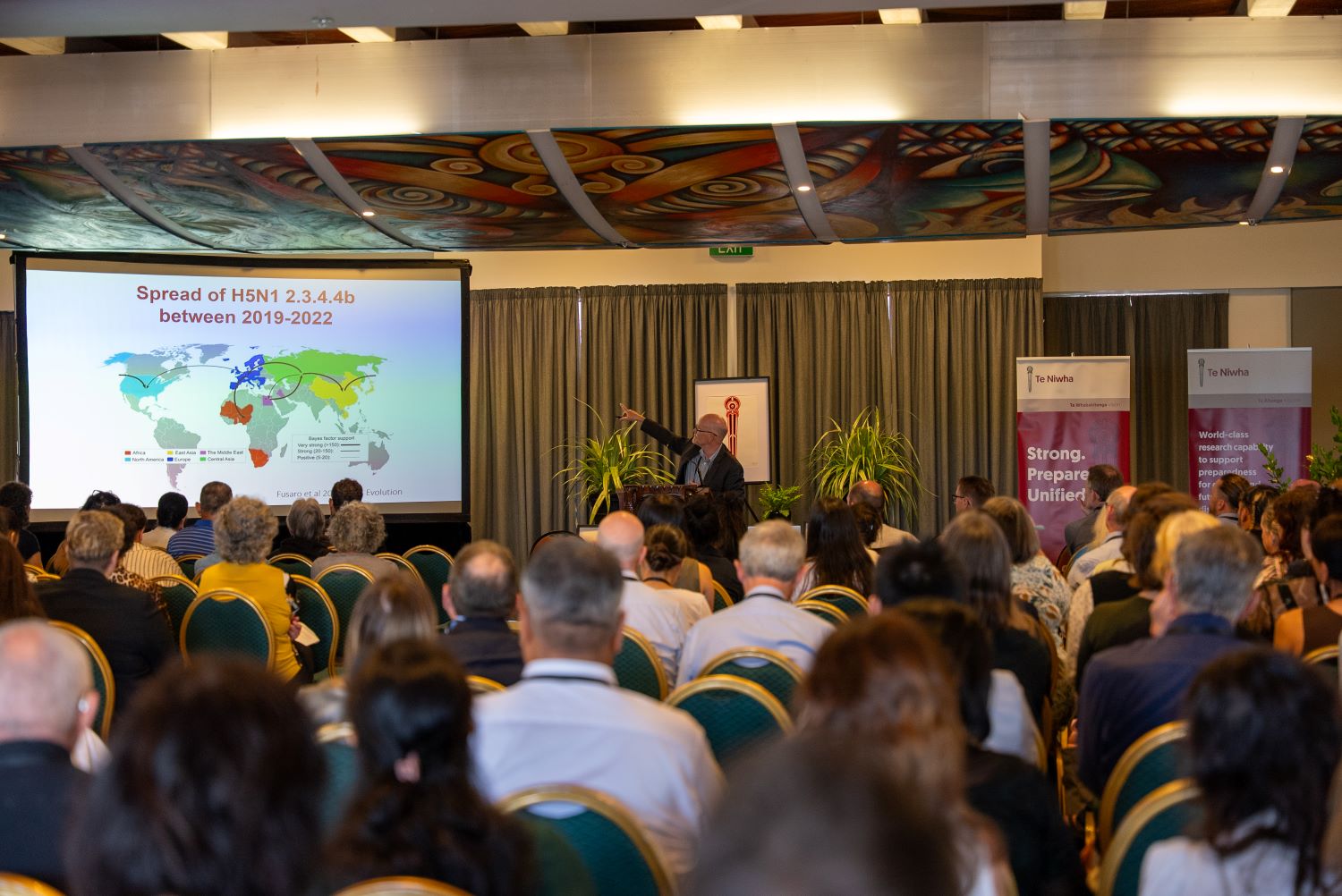Across three-days, Te Niwha hosted more than 80 research presentations, three panel discussions, workshops and cross-sector networking sessions, further strengthening relationships across the infectious-disease science community.
During the event, Te Niwha also released three new video case studies highlighting impactful research underway and demonstrating how infectious diseases research is supporting better health outcomes, and improved readiness for future infectious-disease threats, including:
- ARROW Preschool Wheeze Project: A large trans-Tasman trial testing a medicine called OM-85 to prevent hospitalisations in preschool-aged children with recurrent wheeze.
- Avian Influenza Preparedness: An effort to strengthen New Zealand’s readiness for the potential arrival of avian influenza H5N1, using advanced genomic surveillance and environmental monitoring.
- Broad-spectrum Antiviral Development: Research repurposing existing anti-cancer drugs as potential broad-spectrum antivirals, aiming to develop safe ready-to-use treatments that can protect communities during emerging outbreaks.
Te Niwha’s Interim Director Maree Roberts said the Summit demonstrated the strength and maturity of New Zealand’s infectious-disease research community.
“Returning to Tuurangawaewae Marae provided an important opportunity to reflect on what has been achieved in a relatively short period of time. Te Niwha was established with a three-year investment to build capability, strengthen relationships and improve national readiness.
The progress highlighted at the Summit showcased this work as well as the sustained collaboration between researchers, public health, iwi partners and government agencies that will remain essential as we continue to strengthen New Zealand’s preparedness for current and emerging infectious-disease threats,” says Maree Roberts, Interim Director, Te Niwha.
The case studies are accessible for viewing on Te Niwha website.


